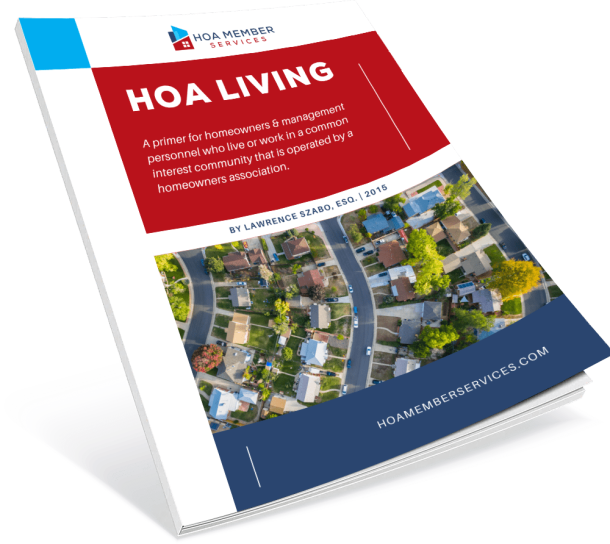Homeowners Associations Should Have a Directors’ Code of Conduct
- Board of Directors, Governing Documents
The Board of Directors of a homeowner’s association (“Association”) is primarily responsible for managing and directing the business and affairs of the Association in a manner that the Board determines, in good faith, to be to the advantage and in the best interests of the members of the Association. Individuals who serve as directors for an Association must maintain a high standard of ethical conduct in the performance of the Association’s business and the discharge of their fiduciary duties to the Association and its members.
Recognizing that the individuals who serve as volunteer directors of a homeowner’s association typically have little or no experience in serving on a corporate board or managing a complex enterprise with on-site employees or a management company, Associations should have a Directors’ Code of Conduct to serve as a valuable reference tool for directors and a reminder of their duties and responsibilities. An Association’s Code of Conduct for directors is designed to provide guidance on ethical issues as well as mechanisms that are available to the Association for addressing unethical conduct by directors and/or conduct that is in violation of specific restrictions or mandates that are imposed by the Code of Conduct or by applicable laws relating to the proper discharge of duties by the directors of nonprofit owners’ associations.
A Code of Conduct for the directors of a homeowner’s association should include:
- A statement of board and director responsibilities that covers: (i) a general statement of the duties and standards of care for all members of the Board of Directors; and (ii) a description of the general and specific duties of the directors of the Association.
- A statement of the professional conduct that is required of directors such as: (i) prohibitions on self-dealing (i.e. making decisions that materially benefit the director or his/her relatives, or business associates at the expense of the Association; (ii) refraining from the improper disclosure of confidential information; (iii) refraining from knowingly misrepresenting facts; (iv) observing proper decorum and acting with respect and dignity and not making personal attacks on others; and (v):
Subscription Required to Continue Reading
To view the full HOA Featured Article, you must have a Subscription with HOA Member Services
Become a Member
Personal Monthly
-
Access to over 600 Articles & Case Decisions
-
Access to hundreds of Resources
-
HOA Newsletter
-
Free Copy of HOA LIVING
-
25% OFF Download Forms
-
1 User
Personal
-
Access to over 600 Articles & Case Decisions
-
Access to hundreds of Resources
-
HOA Newsletter
-
Free Copy of HOA LIVING
-
25% OFF Download Forms
-
1 User
Pro
-
Access to over 600 Articles & Case Decisions
-
Access to hundreds of Resources
-
HOA Newsletter
-
Free Copy of HOA LIVING
-
Free Unlimited Access to Download Forms (save $1000s!)
-
Unlimited Personal Support from HOA Attorney
-
1 User
HOA Team
-
Access to over 600 Articles & Case Decisions
-
Access to hundreds of Resources
-
HOA Newsletter
-
Free Copy of HOA LIVING
-
Free Unlimited Access to Download Forms (save $1000s!)
-
Unlimited Personal Support from HOA Attorney
-
Up to 10 Users

